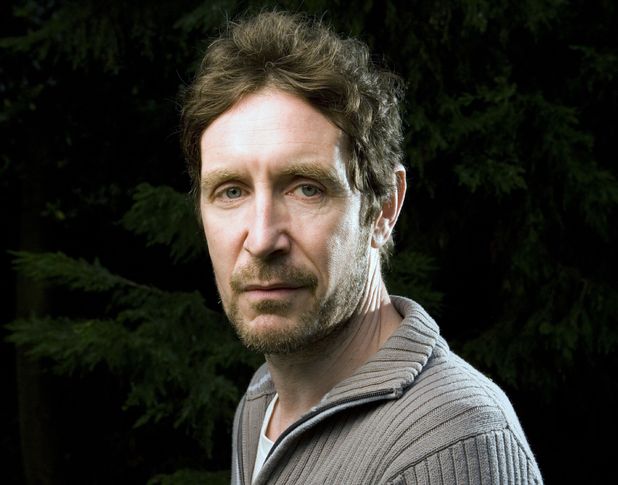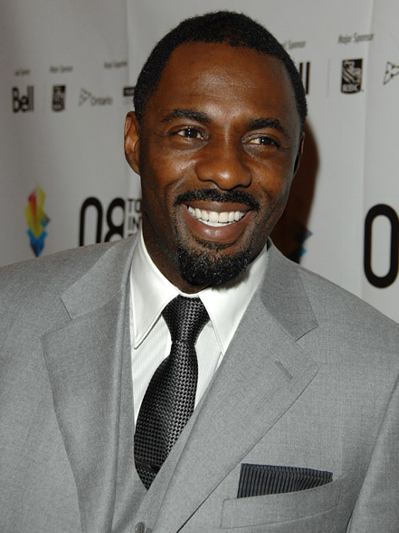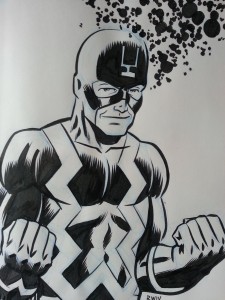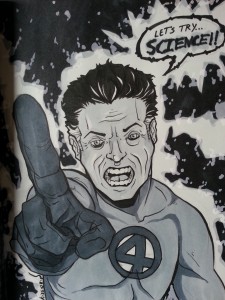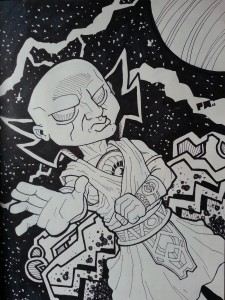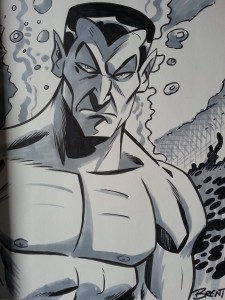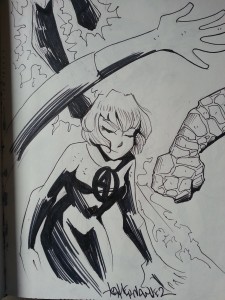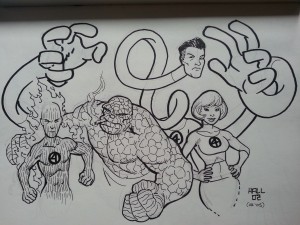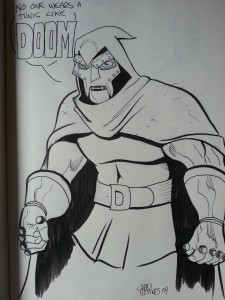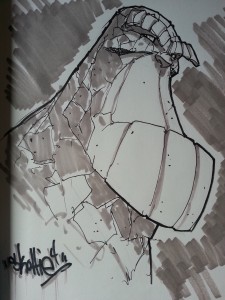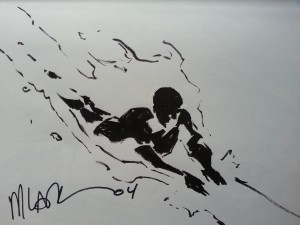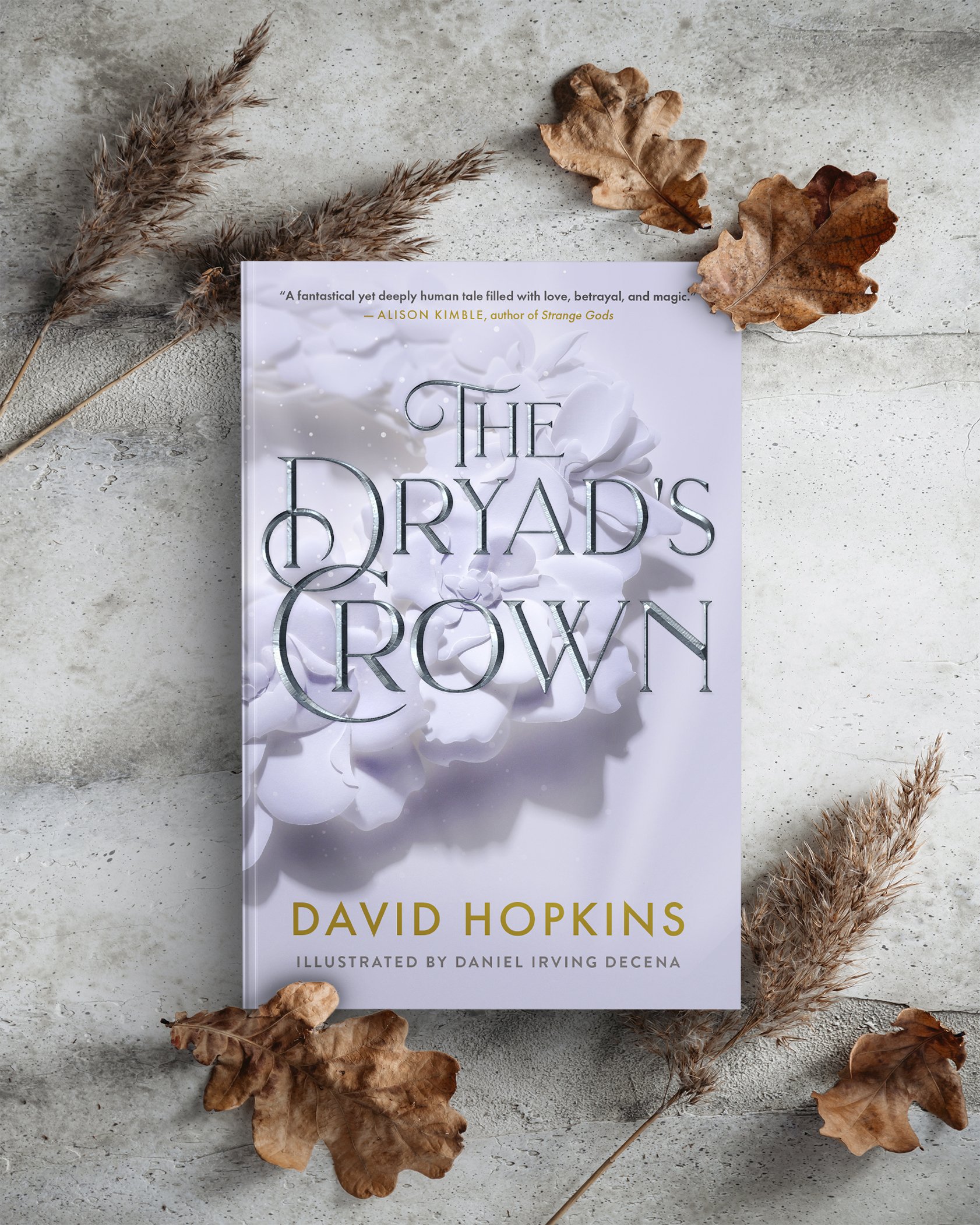My friend Kristina Krengel interviewed me for an assignment in her graphic novel class. (Pause. How awesome is it that "graphic novel class" exists?) Since you're here and I'm here, I thought I'd share what I shared. Some of these anecdotes have been posted before. Am I turning into that guy who shares the same stories over and over?
When did you begin reading comics/graphic novels and why? I know I've talked to you about it helping with dyslexia (I've used that as a pro with my reading teachers before. Thanks.), but was that why you began to read them or just a positive byproduct?
I began reading comics when I was about nine years old. I have dyslexia, but I wasn’t diagnosed until I was an adult. All I knew as a kid was that I had a hard time reading, and I got held back in elementary school because of my grades. Then I discovered comic books, mostly Marvel Comics -- X-MEN, POWER PACK, CLOAK AND DAGGER, X-FACTOR, and NEW MUTANTS. And something clicked. Of course, now I know word balloons group the text in a way that makes it easier for someone with dyslexia. And the illustrations reinforce the words, working in harmony, so that the reading experience is at a more “natural pace” and can be enjoyed. It helped that the stories were wonderfully dramatic, heartbreaking, funny, surprising, and a little crazy. I never missed an issue. It was the fun, expansive universe that I was able to engage in.
What are your favorite types of comics & GN? Why? Do you have a favorite artist or author?
It may sound like I'm cheating to say I love all comics, but I really do. I love mainstream, small press, and independent comics. I love a wide variety of genres. I love Japanese comics (manga) and European comics. Wherever there's a good story, I want to read it. I have a few favorite creators. Right now, I'd say my favorite is Naoki Urasawa. He's one of the most talented storytellers we've ever seen. MONSTER, PLUTO, 20THE CENTURY BOYS -- he crafts these amazingly dense, epic heartfelt stories. His comics are as engaging as anything you'd see on HBO, A&E, or Showtime. I also like Rutu Modan. She's an Israeli illustrator and comic book artist. Urasawa tells big, often loud, stories. Modan's work is much softer and more tender, but her stories will just destroy you. From the U.S., Will Eisner, who passed away in 2005, is my Twain, my Hemingway, my Fitzgerald. His work and his name should be right up there with those authors. He created some of the greatest literature I've ever read, and yet you won't see his name spoken with the same veneration.
I know you helped build a larger GN section in Martin's library while you were there. Why did you want to do this? Was it easy to get support or not? How was the circulation of the section?
Librarians are amazing people. I've never met a librarian who wouldn't move heaven and hell to get you a book. And when I gave Martin's librarian a list of comics/graphic novels that the students would enjoy (and it was a long list), she ordered every single one. It's the most popular section of the school library. I know people bemoan that these comic book kids are no longer reading "real novels," but these kids are actually the ones who are more likely to read novels. They're not the problem; they are our future. It's the kids who never set foot in the library that we should worry about. They don't think there's anything in there for them. And I guarantee we could find a comic book they would love.
Why did you decide to start writing GN?
I always wanted to be a writer. I've dabbled with fiction and non-fiction, essays and short stories. I've written for magazines and websites. And I knew I'd eventually stumble into comics when the opportunity was there. Twelve years ago, I wrote a one-act play for my friend who had a theater troupe. I had about a week to write it. The experience was a trial-by-fire for scriptwriting. The day after opening night, I started writing my first comic. Writing is about momentum, and one experience led me to another.
How did you go about writing (the short version) your graphic novels? How many have you written?
I've written five major works -- KARMA INCORPORATED, EMILY EDISON, ASTRONAUT DAD, WE'VE NEVER MET, and an adaptation of ANTIGONE. I've written twice as many graphic novels (mostly treatments and some full scripts) that have never seen publication. I've had 18 smaller comic book projects published in various formats.
The writing process is different for each comic book/graphic novel. It largely depends on the type of story I write. (Once again, I dabble in different genres. Each story takes a different shape and a different approach.) It also depends on the artist I work with. I try to tailor our collaboration to his or her own preferences and abilities. For instance, Paul Milligan and I largely co-wrote our graphic novel project. With Brock Rizy, our graphic novel was a lot of creative back and forth. On WE'VE NEVER MET, Chad Thomas had ideas that I injected into the work, but it was mostly me passing the finished scripts to him. I wrote ASTRONAUT DAD several years before I found an artist. It all starts with me and a notepad. I brainstorm ideas, jot down a loose outline. I then type a four page synopsis, which I reference when I type the script.

